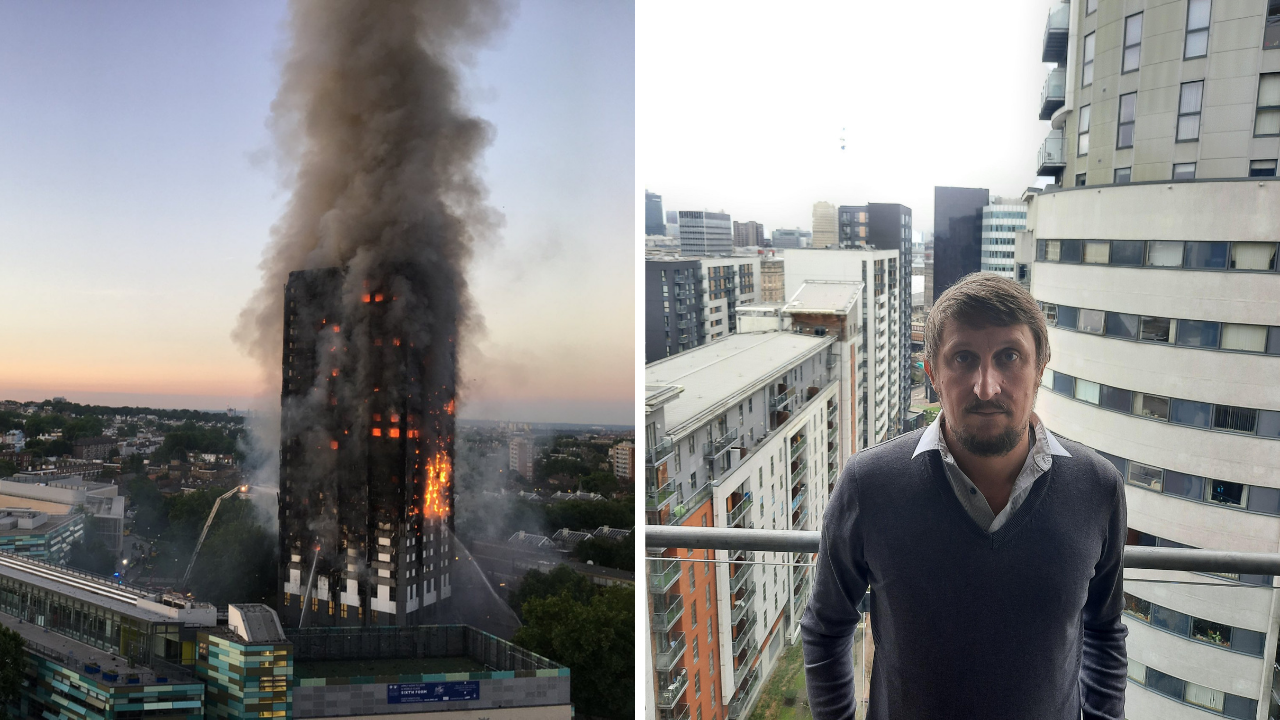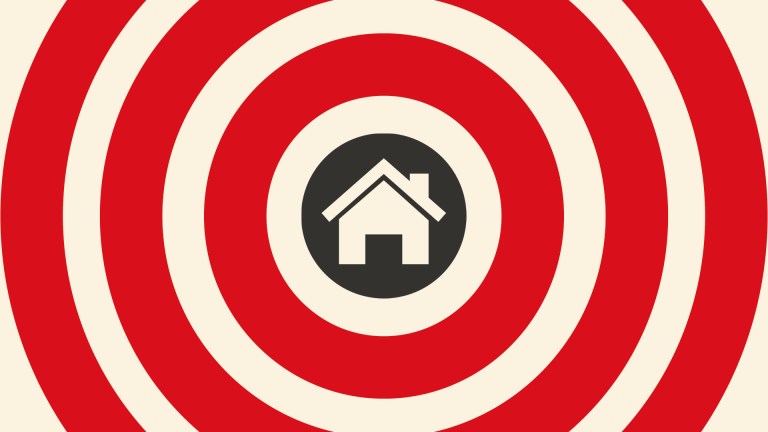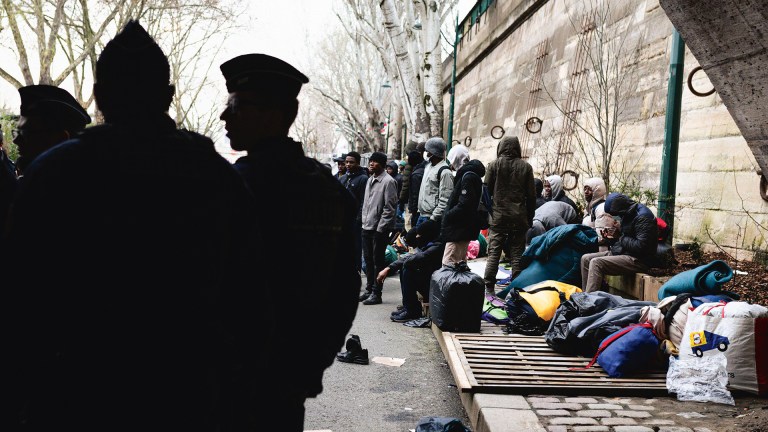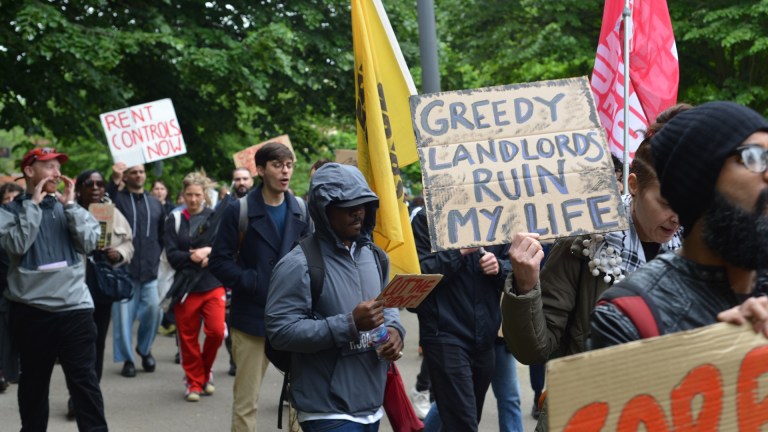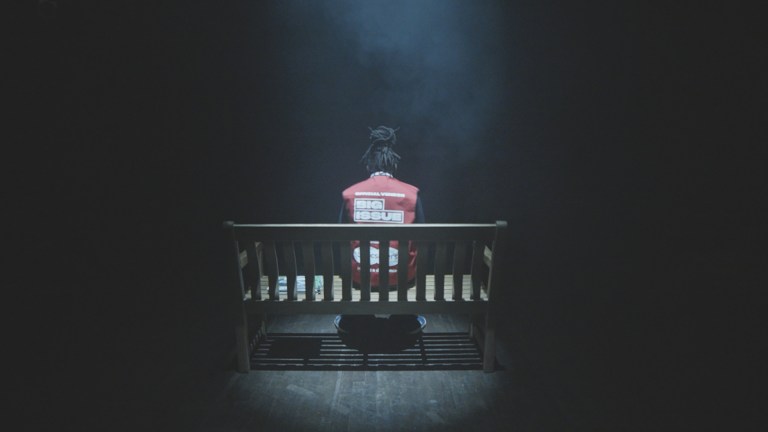“We’re genuinely trapped in buildings that are unsafe and we have so many bills we can’t afford, while the government seems to be pretending to do all the right things. It just doesn’t stack up.”
The Conservatives voted down an amendment to the Fire Safety Bill, meaning under current proposals many of those living in properties with dangerous external cladding will be asked to pay for improvements, potentially “bankrupting” them.
Yvette Williams lives around the corner from the site of the 2017 tragedy in west London. A Justice 4 Grenfell co-ordinator, she questioned whether there is the political will to pass legislation.
“What is the priority?” she asked. “Putting in public money into making sure people have safe homes by taking down cladding – no matter how much it costs – or securing the profits of building and developers company? It’s an easy choice.
“Are our lives worth less than a building or insurance company who are already making huge profits. This Bill, although it needs political will, is not a political issue, it is a humanitarian one.”
In February, the Conservatives announced grants worth £3.5billion to tackle unsafe cladding in homes which would see the government paying for their removal in high-rise buildings over 18 metres high. But the funding does not cover those in blocks below this, with leaseholders of flats in lower-rise blocks forced to repay costs via a loan scheme, on top of costly safety measures such as fire patrol.
While the House of Lords is likely to return the Bill to the Commons with further amendments for consideration, those hit by mounting bills and the fear of bankruptcy say action from the government is a must.
The progress the government has made in providing help has also been questioned, with campaigners claiming the £3.5bn announced earlier this year will help “very few”.
Julie Fraser, a 58-year-old cladding campaigner from Runcorn in Chesire, claims financial stipulations required of leaseholders could prevent thousands from accessing funding. She said: “You can’t access any of that money until you have money in place for internal issues. If you haven’t got that you won’t be eligible for funding. So really the £3.5bn will help very few.
“They keep telling us they don’t want the taxpayers to pay for this. We bought a leasehold in good faith believing the buildings are entirely safe. The developers, manufacturers, installers need to be held responsible for that.”
The Government told the Big Issue it is spending billions to ensure homes are safer, with a focus on buildings over 18m, with a spokesperson claiming they “support the intention to protect leaseholders from remediation costs”.
The government says its financing scheme for smaller buildings will allow the remediation of dangerous cladding to take place and leaseholders will not be asked to pay more than £50 a month towards it. But for many, the costs of removing cladding could run into the tens of thousands, meaning residents could be burdened with these costs for the rest of their lives.
For others, the cost could be more than financial. Liam Spender is a 37-year-old solicitor living near Canary Wharf, whose building does not meet the 18 metres threshold required for funding.
Having moved into his flat nearly two years ago, Liam quickly discovered he could be paying more in remediation costs than he has into his mortgage to date, risking bankruptcy and his career.
“If i can’t pay the bill, I could lose both my home and my job,” he said. “I wouldn’t be allowed to practise.
“What a lot of people don’t understand is they think we’re asking for a taxpayer handout for a basic repair. We’re asking to be spared the consequences of a terrible regulatory disaster and choices made by builders to save money and increase profits.
“That can’t be right, people being made bankrupt and potentially losing their whole lives for something that wasn’t their fault. It’s the government’s job to protect the people from situations like this and they just seem to have abdicated responsibility for it.”
